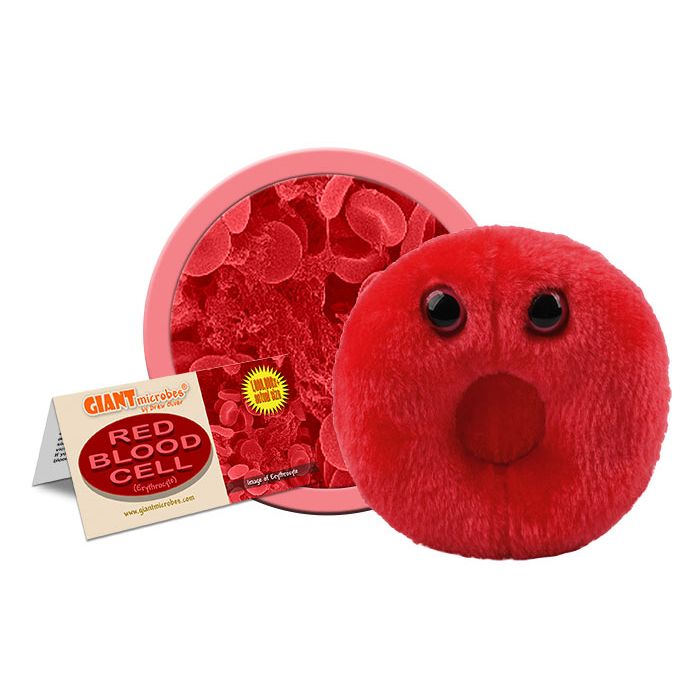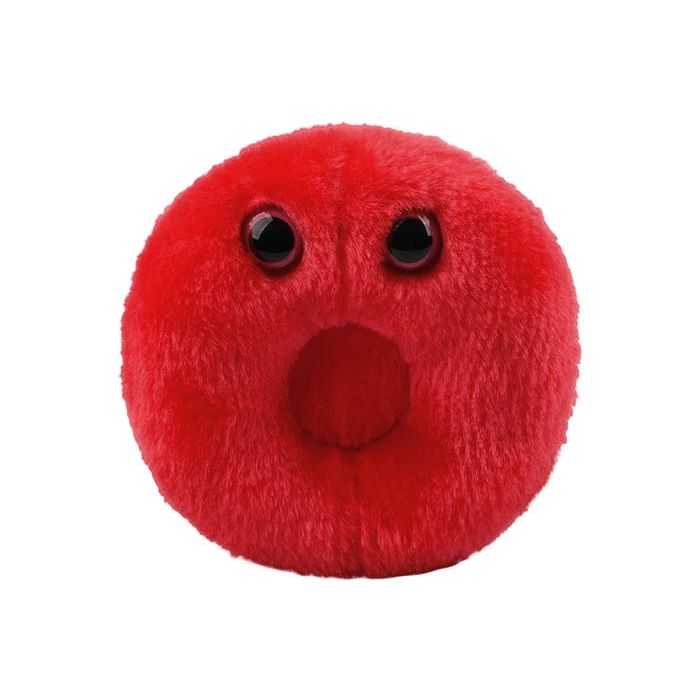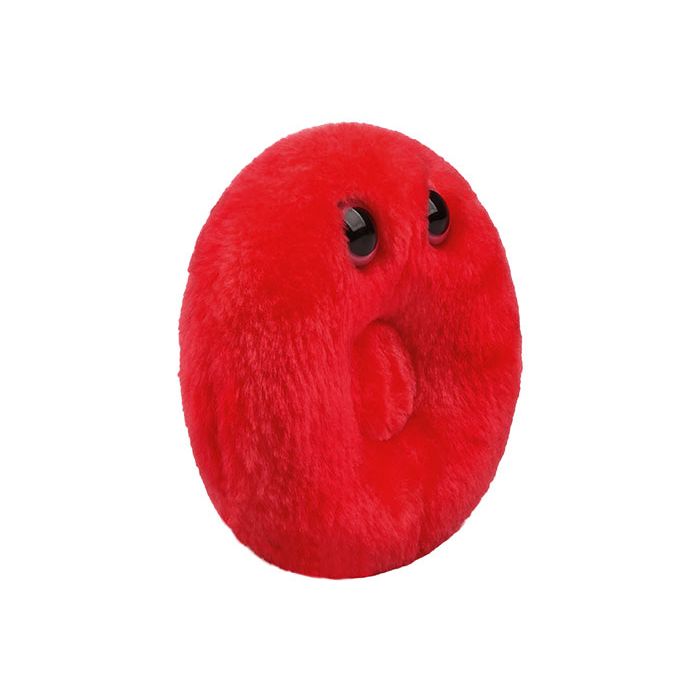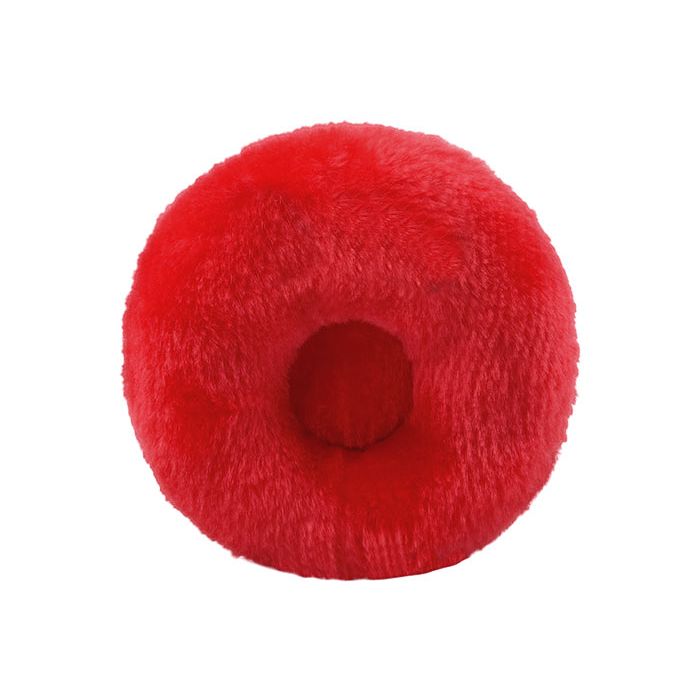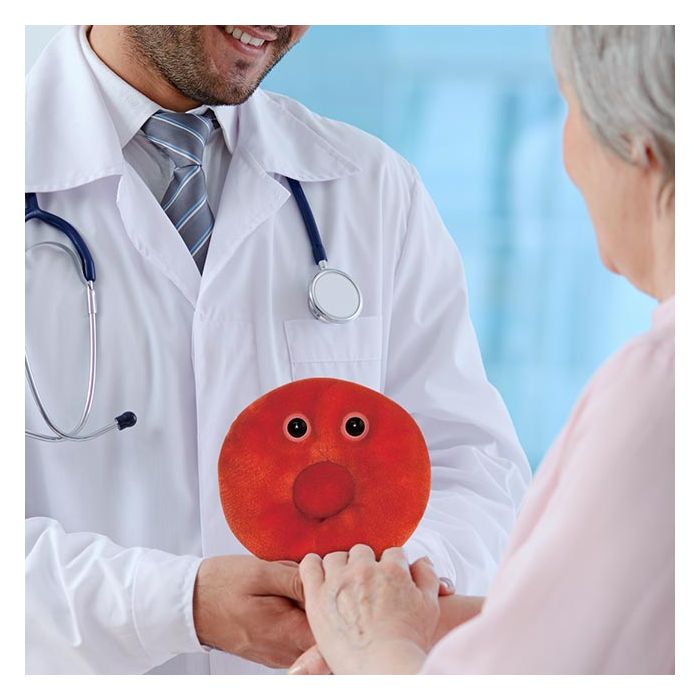Red Blood Cell (Erythrocyte)
Our Red Blood Cell is the life of the party - invite him to your next biological bash and you'll have a bloody good time! Our Red Blood Cell is soft, cuddly and serves as a great reminder to love your blood, be healthy and donate.
A memorable get well gift and fun hands-on learning tool for students, scientists, educators, doctors, nurses, health experts and anyone with a healthy sense of humor. Features realistic biconcave design and includes educational card with fascinating facts.
Size: 5 x 5 x 2"
Product Details
Additional Information
| Sizes | Giantmicrobes are based on actual microbes, cells, organisms and other critters, only 1,000,000 times actual size! Gigantic (GG) 16-24" XL (XL) 10-15" Original (PD) 5-8" Keychain (KC) 2-4" with clip |
|---|---|
| Materials | Plush from all new materials. Stuffed with polyester fiber fill. Surface washable: sponge with water & soap, air dry. |
| Packaging | Each plush microbe includes a printed card with fun, educational and fascinating facts about the actual microbe or cell. |
| Safety | Every product meets or exceeds U.S. and European standards for safety. For ages 3 and up. |
All about Red Blood Cell (Erythrocyte)
FACTS: Red blood cells, or erythrocytes, contain the hemoglobin that carries oxygen and carbon dioxide around the body. (Erythro means red in Greek, and cyte translates to cell.) Hemoglobin gives red blood cells their characteristic color. When it is oxygen-rich, it appears reddish; when oxygen-poor, it is darker and bluish.
Although erythrocytes are flexible (which permits them to squeeze through capillaries), they typically have a distinctive biconcave shape that helps maximize surface area to facilitate the exchange of gases.
Red blood cells are produced in bone marrow. It takes about a week to make one, and they last for about 3 to 4 months. When time's up, the liver or spleen deliver the coup de grâce. (If red blood cell counts get too low – from injury, illness, or dietary problems such as iron deficiency or lead ingestion – anemia can occur, with symptoms such as pale skin, fatigue, and accelerated heart rate.)
A normal person can have more than 10,000,000,000,000 erythrocytes in their body! So don't fret if a few escape. And think about giving some away too. Donated blood can only be stored for six weeks and is constantly required to save the lives of accident victims and surgical patients, and to help manage chronic diseases. If you're healthy, you've got lots to spare. So have a heart – it's a bloody good idea!
| Description | Red blood cells, also called erythrocytes, are flexible, red, biconcave discs. This structure provides the cell with ample surface area for the absorption and delivery of oxygen and carbon dioxide. The cells contain hemoglobin, a red protein that binds to the air so that it can be distributed throughout the body. Red blood cells, like white blood cells, are made in the bone marrow and circulate through the blood stream. This is a cute gift for that person who gets your blood flowing! |
|---|
| Name | The name Red Blood Cells is derived from the appearance. Erythrocyte comes from the Greek words: Erythros= red, Cyte= cell. |
|---|
| Actual Size |
The average diameter of circulating red blood cells is 8 micrometers, less than the width of a cotton fiber. Quantity:30 trillion red blood cells for men, 20 trillion for women. |
|---|
| System | Circulatory System |
|---|
| History |
1658: Jan Swammerdam was the first to see red blood cells under the microscope. 1695: Antoni van Leeuwenhoek described the size and shape of them. |
|---|
| Fascinating Facts |
Incomplete cells: Mature red blood cells don’t contain a nucleus, and they are incapable of cell division. Life span: Approximately 120 days. They are replaced at a rate of 2.5 million per second. Red Blood Cells in Life: There is a German band named Red Blood Cells. Their debut album is “Deloxy.” |
|---|









